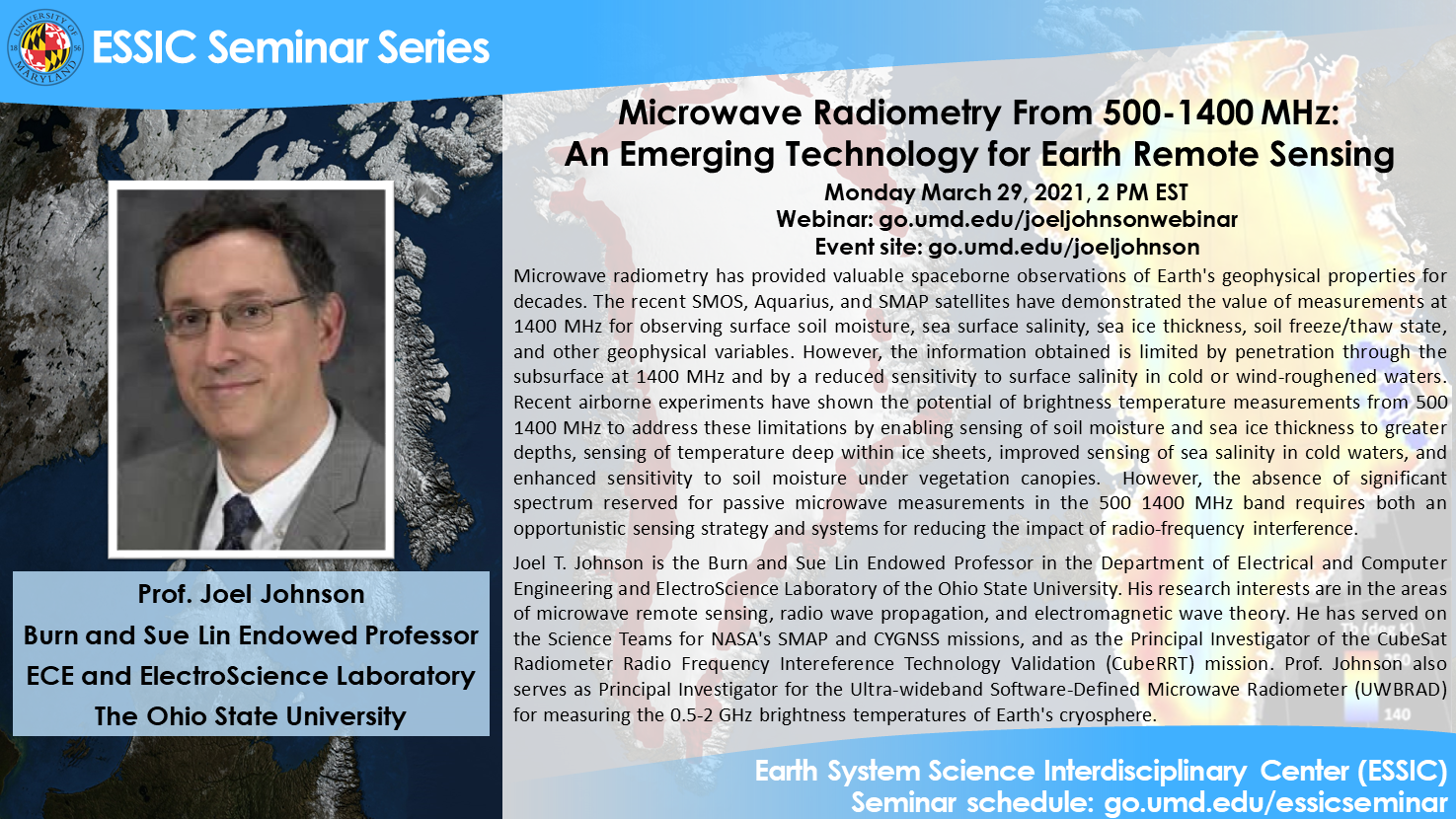
Microwave Radiometry From 500-1400 MHz: An Emerging Technology for Earth Remote Sensing
This event has passed. The seminar recording can be found here:
Prof. Joel Johnson
Burn and Sue Lin Endowed Professor
Department of Electrical and Computer Engineering and ElectroScience Laboratory
The Ohio State University
Monday March 29, 2021, 2 PM EST
Abstract:
Microwave radiometry has provided valuable spaceborne observations of Earth’s geophysical properties for decades. The recent SMOS, Aquarius, and SMAP satellites have demonstrated the value of measurements at 1400 MHz for observing surface soil moisture, sea surface salinity, sea ice thickness, soil freeze/thaw state, and other geophysical variables. However, the information obtained is limited by penetration through the subsurface at 1400 MHz and by a reduced sensitivity to surface salinity in cold or wind-roughened waters. Recent airborne experiments have shown the potential of brightness temperature measurements from 500 1400 MHz to address these limitations by enabling sensing of soil moisture and sea ice thickness to greater depths, sensing of temperature deep within ice sheets, improved sensing of sea salinity in cold waters, and enhanced sensitivity to soil moisture under vegetation canopies. However, the absence of significant spectrum reserved for passive microwave measurements in the 500 1400 MHz band requires both an opportunistic sensing strategy and systems for reducing the impact of radio-frequency interference.
Biosketch:
Joel T. Johnson is the Burn and Sue Lin Endowed Professor in the Department of Electrical and Computer Engineering and ElectroScience Laboratory of the Ohio State University. His research interests are in the areas of microwave remote sensing, radio wave propagation, and electromagnetic wave theory. He has served on the Science Teams for NASA’s SMAP and CYGNSS missions, and as the Principal Investigator of the CubeSat Radiometer Radio Frequency Intereference Technology Validation (CubeRRT) mission. Prof. Johnson also serves as Principal Investigator for the Ultra-wideband Software-Defined Microwave Radiometer (UWBRAD) for measuring the 0.5-2 GHz brightness temperatures of Earth’s cryosphere.
Webinar:
Webinar thread: https://go.umd.edu/joeljohnsonwebinar
Event site: https://go.umd.edu/joeljohnson
Webinar number: 120 194 4468
Webinar password: essic
To join the audio conference only:
US Toll: +1-415-655-0002
Global call-in numbers
For IT assistance:
Cazzy Medley: cazzy@umd.edu
Travis Swaim: tswaim1@umd.edu
Resources:
Seminar schedule & archive: https://go.umd.edu/essicseminar
Seminar Google calendar: https://go.umd.edu/essicseminarcalendar
Seminar recordings on Youtube: https://www.youtube.com/user/ESSICUMD

